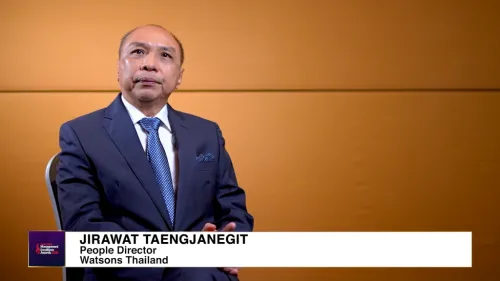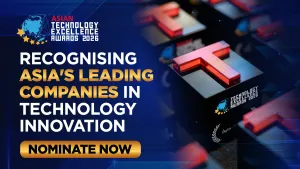
Philippine startups tied up in red tape struggle to take off
Tech ventures must obtain dozens of permits and wait weeks for approval.
Arcane government regulations and bureaucratic red tape are stunting the growth of startups in the Philippines, where it takes more than a month to register a business and even longer — years, in some instances — to shut it down.
These outdated policies go against the very nature of startups — they rely on technology to market their products and scale the business so they can grow quickly and smoothly.
“We need government agencies to look at the policy environment for startups,” Minette Navarrete, president and co-founder of Manila-based Kickstart Ventures, told Asian Business Review.
“They need to see which policies are either lacking or may have been crafted in the 1950s and 1970s, and therefore they worked for that environment, but not for the current environment,” she added.
The Philippines is the most challenging country in which to launch a startup, according to Business Name Generator’s 2023 Global Startup Index, which took into account tax rates, economic growth, cost of living and setup costs.
The cost of launching a startup in the Southeast Asian nation was the highest among 50 countries at 23.3% of GNI per capita, it said. The average monthly salary is low at $850, and the quality-of-life score for employees is the lowest, which could affect productivity, employee engagement, and job satisfaction, it added.
Of about 1,000 global deals that Kickstart Ventures closed in the second quarter of 2024, only 90 deals or 9% involved Philippine startups. This is a great accomplishment compared with 12 years ago, when the Southeast Asian nation had no startup ecosystem.
“In those early days, there were none,” Joan Yao, vice president of investments at Kickstart Ventures, said in an interview. “When I was looking at our data from 10 years ago [2014], the total number of Philippine startups that Kickstart met and even helped to grow — the grand total was 109.”
Now, the venture capital firm works with as many as 400 Philippine startups, out of the 700 total estimated by the Asian Development Bank (ADB) in October 2023.
Whilst better than the 100 startups the country had in 2015, it pales in comparison to the 2,431 Indonesian startups estimated by the ADB at the end of 2022, Malaysia’s 3,000 and Singapore’s 4,500.
Vietnam had as many as 3,800 startups in 2022, according to a separate report by KPMG and HSBC.
All these countries have at least one unicorn — a startup valued at over US$1 billion that is privately owned and not listed on a stock market.
Indonesia has Gojek, Singapore has Shopee and Lazada, Malaysia has Carsome, and Vietnam has VNLife and VNG.
The Philippines has Mynt, which operates e-wallet giant GCash. But unlike other firms that started from scratch, Mynt is owned by Globe Telecom, the country’s largest mobile network operator.
Encouraging failure
Navarrete said the government should update laws crafted decades ago to protect investors from fraud and other schemes that are no longer applicable today. For example, it takes years and a lot of money to shutter a company in the Philippines, which is the antithesis to the whole startup spirit.
“What happens is that founders struggle to shut down a failed company, when what you really want is to make it easy for somebody to start, giving them incentives to scale,” Navarrete said.
Tech startups, like any business trying to register in the Philippines, must obtain dozens of permits and licences, and wait weeks for approval. This is despite a law passed in May 2018 that seeks to streamline government business and nonbusiness transactions, including the issuance of permits, and holding state officials accountable for corruption.
Business consulting firm Acclime noted that each year, companies in the Philippines must make 47 tax payments. Property registration takes an average of 39 days, and all documents must be notarized. On average, the process of starting a business takes more than a month to complete.
“Some government agencies require startups to submit business models and proposals, which may be a difficult requirement for startups that may not have the necessary data,” the ADB said in a May 2023 report.
There are also cases where a startup must prove that it can issue an official receipt.Congress passed twin measures in 2019 that institutionalised
support for the tech startup sector and recognized its role in economic development. But many startups are unaware of state support programs.
The ADB cited a gap between support for early-stage and late-stage startups. The country has about 35 incubators and accelerators that help startups develop their ideas into viable businesses by providing advice, training and links to investors.
But it lacks a mature accelerator program for advanced-stage startups that need more customised mentorship and support.
The lack of infrastructure is also a limiting factor for economic growth, and entrepreneurs struggle with slow regulatory support, according to a June 2024 report released by StartupBlink.
“Very frequently, we forget that the Philippines is in competition with other countries, and if other countries have far more generous incentives and investor-friendly environments or policies, then we lose out,” Navarrete said. “There is a big competition for not just investor dollars. There's a competition for talent.”
Offering incentives to talented Filipinos and expatriates could boost the startup ecosystem.
Navarrete noted that in the early days of Kickstart Ventures, most of the startups in the Philippines were set up by either expatriates or Filipinos returning from overseas.
“It helps to offer more incentives for talent to come,” she said. “You don't have to look very far to see where investors have been incentivized through government matching programs, where it's been made easy for talent to move around,” she added.
Navarrete said the government should encourage the country’s fewer than 5,000 big corporations to consider startups when they are looking for solutions. “We believe corporations ought to be looking at startups for the creativity they bring and to give them the opportunity to scale,” she said.
Despite these issues, the Philippine startup ecosystem is showing signs of growth, according to Navarrete and Yao.
‘It can be done’
“We're seeing more companies raising Series A, Series B, Series C,” Yao said. “Kumu, for example, and Growsari — those are some Series C-level companies.”
Early successes include Coins.ph, a crypto wallet that made its “exit” through an acquisition by Indonesian ride hailing giant GoJek; and Zap, which offers digital loyalty programs.
Coins.ph marks Kickstart Ventures’ first exit, or when a company and its investors sell its ownership to another firm.
Both Coins.ph and Zap show that homegrown startups can grow, but it takes time. Kickstart Ventures made its first investment in Coins.ph in 2016; for Zap, it was in 2012.
Promising startups include PDAX, a crypto exchange platform, and Sprout Solutions, named as one of the largest business-to-business players in Southeast Asia.
For series A companies, Kickstart Ventures listed Pickup Coffee and Edamama as the ones they are most excited for.
Kickstart Ventures admitted that they invest in startups that have a chance of getting big, if only to show that it is possible. “It shows the talent here that it can be done, and it trains a new generation of people who work at startups to know how to scale a company,” Yao said.
Kickstart Ventures wants to eventually see a Filipino unicorn that is not tied to a big corporation. “It will show investors that the Philippines can become a market where you can grow a billion-dollar company. I think that is what will help open the gates for more [investments],” she added.



















 Advertise
Advertise








